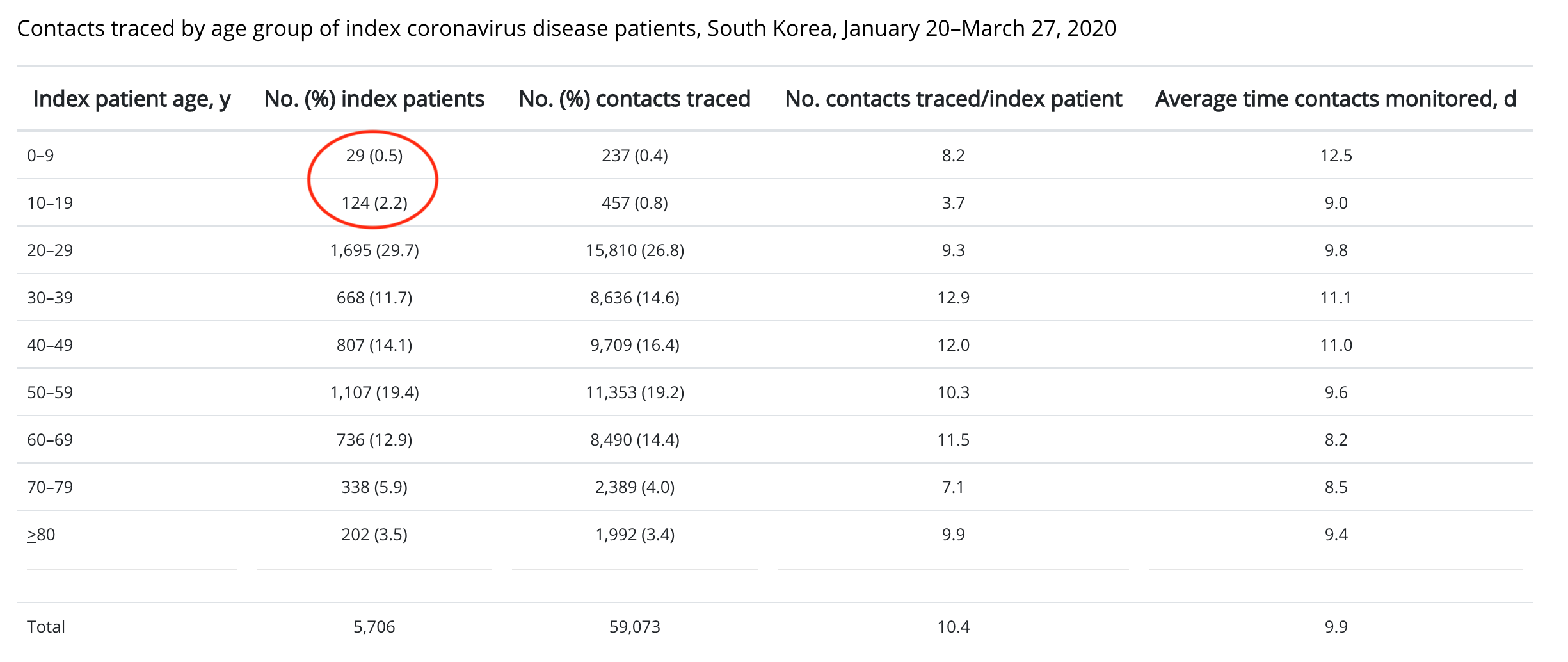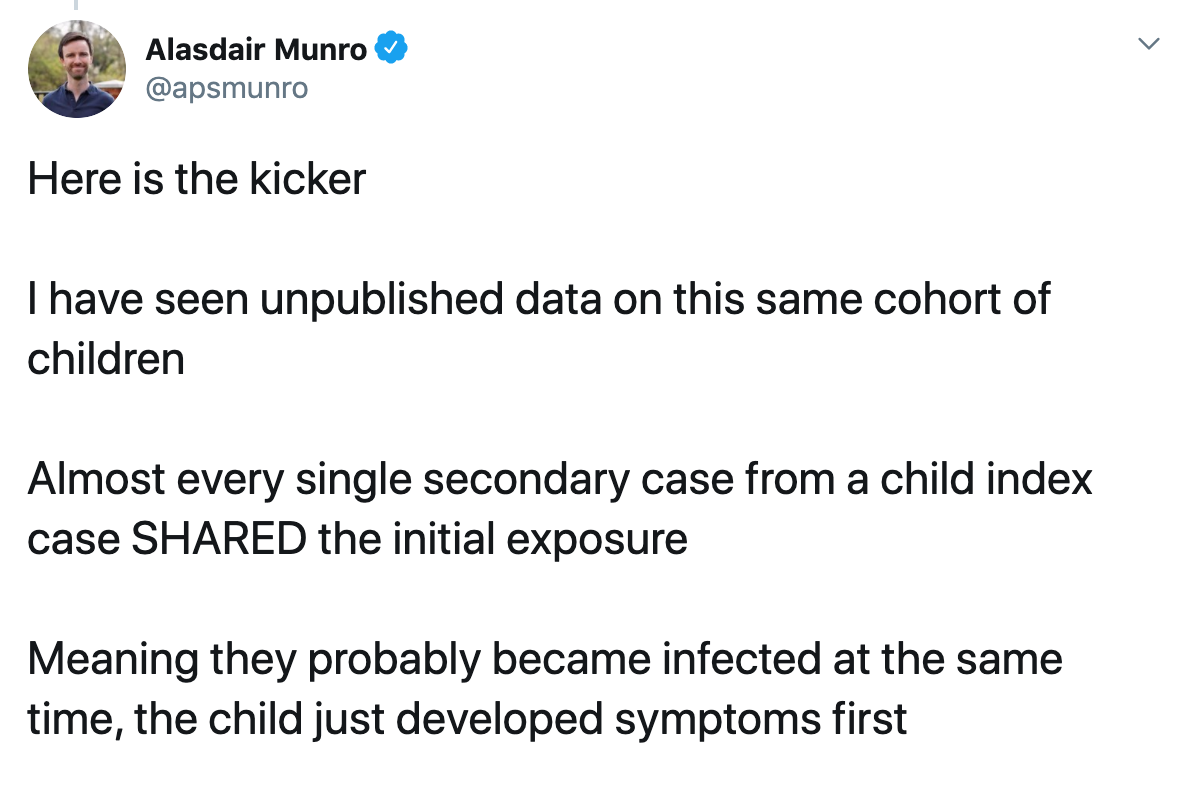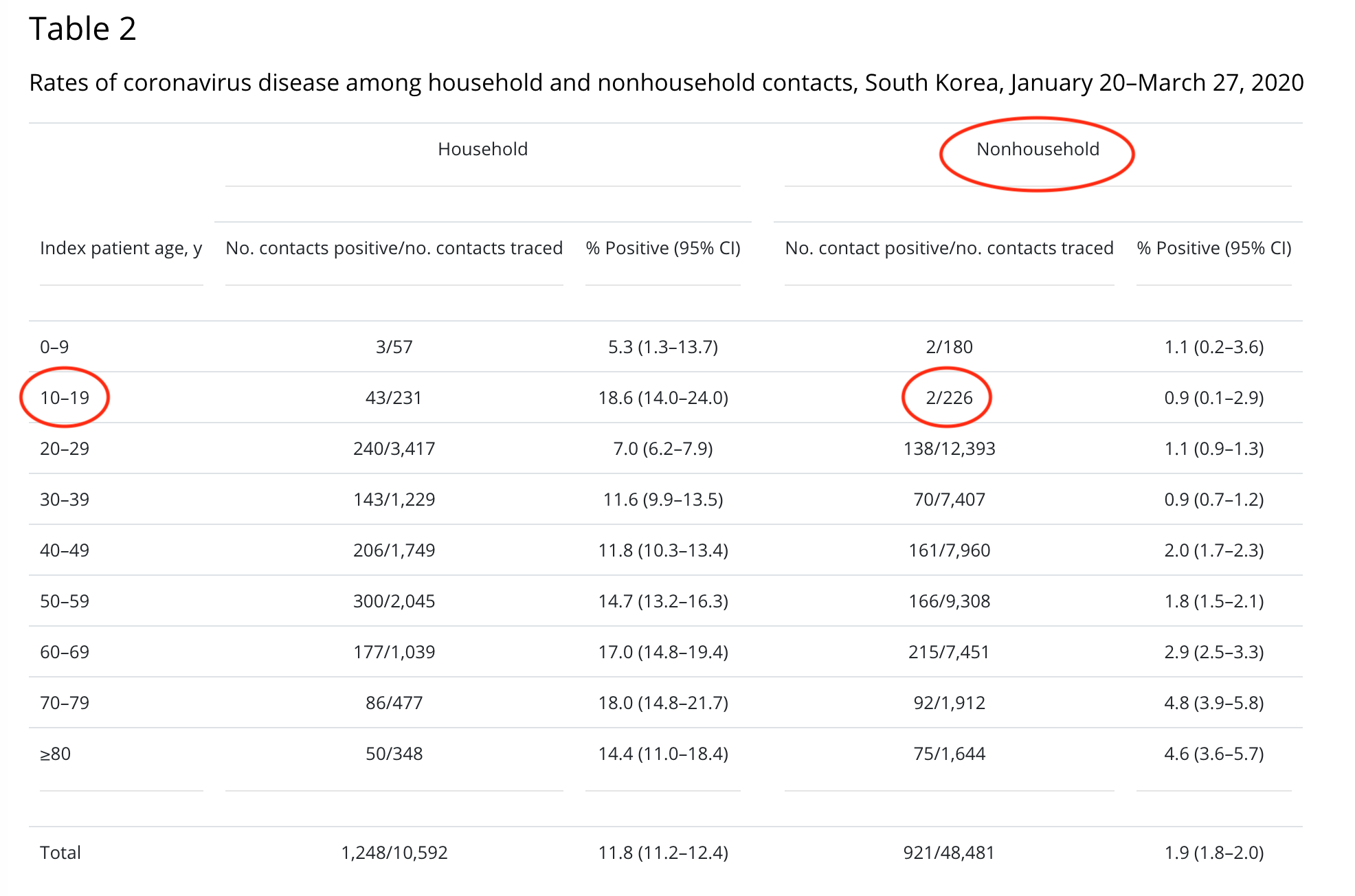"In an incredible redux of when they hyped the Christian Drosten fake paper claiming children were highly infectious — when his math actually showed the opposite — the New York Times and Chicago Tribune pushed screaming headlines that a new Korean government report proves children ages 10 to 19 are highly infectious.
The Korean government report, based on data from March and ignoring all newer research, does make that claim, with qualifications, in its narrative summary. Its actual math, however, shows exactly the opposite. Do the elite newspapers even bother to consult anyone numerate?
As Professor Francois Balloux of the University of Lausanne Genetics Institute immediately replied, the New York Times writer completely misunderstood the report.
In fact, the report found that it was extremely rare for children to bring an infection into the home. It found that just 2.7 percent of potential “index cases” (first case in the home) were under age 20. Imagine twisting that into a call for school closures. It’s astonishingly reckless.
The report also did no genetic mapping and therefore was unable to determine true index cases. The paper itself says, “[W]e could not determine direction of transmission.” Contrast that with the contact tracing study from Iceland, which mapped haplotypes to determine direction of transmission and found it was almost always parent to child.
The supposedly highly contagious 10-19 group had only 3.7 contacts per potential index patient, which is dwarfed by the adult categories. This report, to the extent it tells us anything, indicates children play no significant role in community transmission, consistent with all of the most recent research.
You’ll also notice the number of potential under-age-20 “index cases” in the report is 153, not the 65,000 suggested by the New York Times’ dishonest sub-headline.
Moreover, grouping ages in 10-year bins destroys any potential meaning of age, which should be a continuous variable. Most or all of infected contacts by the 10-19 group could be by 19-year-olds. That a 19-year-old could transmit like an adult would be unsurprising; this study tells us nothing about what age a child becomes more like an adult for purposes of transmission. Binning a continuous variable is a crime against math. Curiously, it’s the same mistake Drosten made in his infamous fake paper claiming children are superspreaders, which the New York Times also hyped and never corrected after it collapsed.
And then there’s this from Alasdair Munro, the world’s foremost expert on pediatric COVID-19:
So it turns out that even the 2.7 percent of potential index cases from children under age 20 probably were not true index cases. They might not have infected adults in the household at all; the adults were simply exposed at the same time as the child. This helps explain the huge discrepancy between household and non-household contact (just two infections among 226 traced contacts) among the 10-19 group. The household infections were likely an artifact of misidentifying index cases.
Of course the New York Times should correct and retract, but it won’t. The rest of the media will join the panic porn parade, and opportunistic teachers unions are already leaning on this dishonest headline claim to justify their ongoing de facto strikes. The real numbers in this study, however, just add one more data point to the overwhelming case against school closures."
Friday, July 24, 2020
New York Times-Hyped Korean Report Actually Shows Kids Are Not Spreading Coronavirus
By Phil Kerpen. He is president of the Committee to Unleash Prosperity.
Subscribe to:
Post Comments (Atom)




No comments:
Post a Comment
Note: Only a member of this blog may post a comment.